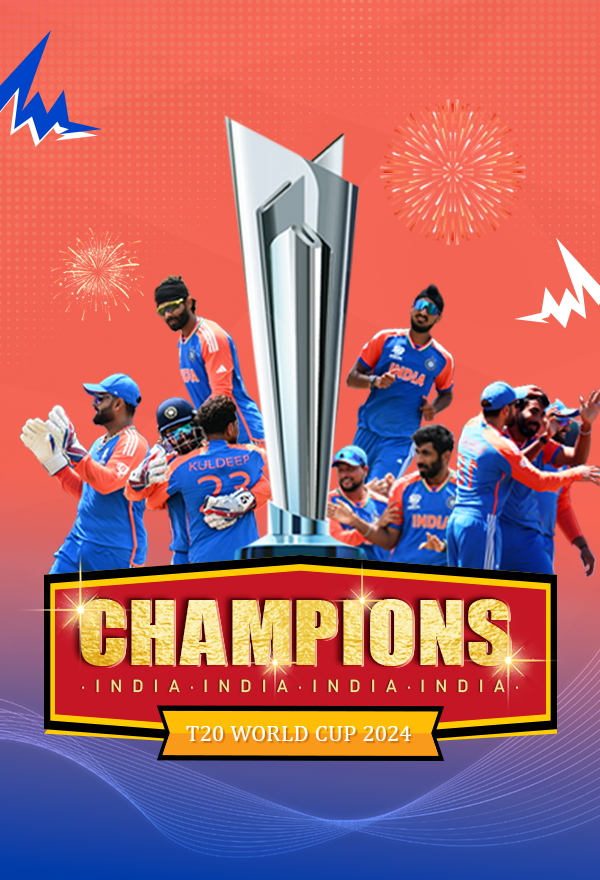Before Wednesday night’s T20 World Cup semifinal against Afghanistan, there were apprehensions: what if another title opportunity slipped through South Africa’s fingers? However, Aiden Markram and South Africa dispelled these doubts emphatically by qualifying for their first-ever T20 World Cup final with a nine-wicket win at the Brian Lara Stadium in Tarouba, Trinidad.
But amid the pandemonium of the first semifinal, headlined by Afghanistan’s spectacular batting collapse, there is one aspect of these two teams that deserves mention: the emotional bond that fans have with both South Africa and Afghanistan.
It is a connection rooted in something more than mere hero worship. Afghanistan’s ascent in international cricket has played out against a backdrop of war, terrorism, and rising intolerance. For many people, their performances have been a consoling experience. The celebrations this semifinal run has produced back in Afghanistan are heartwarming.On the other hand, South Africa’s cricket history has been marked by near misses so frequent that fans can’t help but feel a twitch in their stomach every time the team falls short in a world tournament.
The reminders of past World Cups—in 50-over format—are painful: the 1992 semifinal against England, marred by rain; the heartbreaking final over against Australia in 1999; the misreading of the DLS regulations in 2003, which led to its premature exit; and the 2015 semifinal defeat to New Zealand in Auckland. The last one still hurts, especially for players like Quinton de Kock and David Miller, who were part of that squad too.
REPORT | South Africa dismantles Afghanistan to enter maiden final
In his book, AB: The AutobiographyAB de Villiers describes the 2015 World Cup semifinal defeat as the “greatest disappointment” of his cricket career. With five needed from two balls, Grant Elliott hit Dale Steyn into the stands to finish unbeaten on 84 and seal a four-wicket win. No one cut a lonelier figure that night than Steyn, who sank to his haunches. Nine years later, Steyn was in the commentary box on his birthday eve, watching his team exorcise ghosts of the past.
The first semifinal was thus a gorgeous, gaudy excess of emotions. South Africa’s celebrations were muted upon crossing the finish line; the men from the Rainbow Nation know all too well what being so near yet so far feels like.
The truth of that rare private moment between both sets of players as they shook hands after the game is something only the protagonists will ever know, but it is all the more poignant because of the unrelenting antecedents of the journeys of these two teams.AS IT HAPPENED – Afghanistan vs South Africa Highlights
After all, South Africa had won only one of all its 13 semifinals in men’s international cricket (Test/ODI/T20I) – a 92-run victory against Sri Lanka (30 October 1998 – Wills International Cup) before this semifinal, while Rashid Khan’s men went from not winning a single game in the previous edition of the T20 World Cup to bagging five victories this year.
Afghanistan will fly home knowing it has given a valiant account of itself, with wins over New Zealand, Australia and Bangladesh being the highlights.
| Photo Credit:
AP
Afghanistan will fly home knowing it has given a valiant account of itself, with wins over New Zealand, Australia and Bangladesh being the highlights.
| Photo Credit:
AP
Now South Africa will attempt to become the first team ever to win the T20 World Cup unbeaten, while Afghanistan will fly home knowing it has given a valiant account of itself, with wins over New Zealand, Australia and Bangladesh being the highlights.
One bad day can undo all the good work and lacerate a team’s confidence, but lessons can be learned from the scars, as Rashid Khan pointed out after the match: “There is a lot of hard work to be done, especially in the middle order. We need to be aggressive and have someone to take the innings deep. We have achieved some good results, but when we come back in the tournament, we need to do better, especially in the batting department,” he said.
Afghanistan’s 56 all out is now the lowest total by any team in a knockout match at the T20 World Cup. The margin of South Africa’s win, with 67 balls remaining, is its biggest win by balls to spare in T20Is. But to reduce tonight’s experience to the cold statistical reality of modern-day cricket, as evidenced through this piece, would be a gross disservice to the fans. While empirical evidence may be the logical conclusion of a sport, trying to codify every aspect of it will always remain a futile task.













